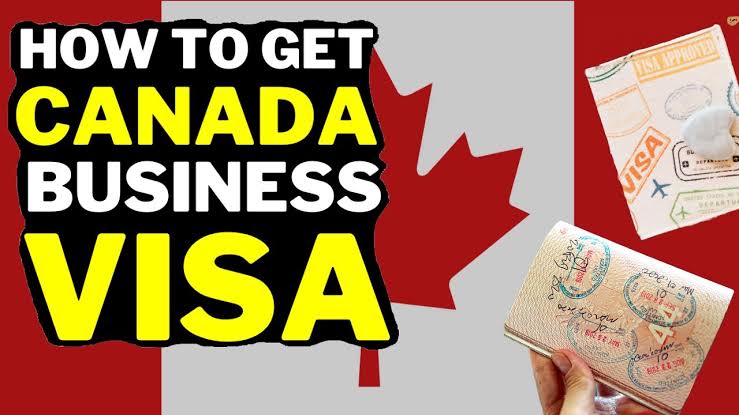Canada has become one of the most attractive destinations for entrepreneurs, investors, and business professionals looking to expand globally. Its stable economy, diverse population, and strong ties to international markets make it a prime hub for business opportunities. To engage in business activities legally, foreign nationals are often required to obtain a Canadian business visa. This visa allows individuals to attend meetings, conferences, trade shows, or explore potential business ventures within the country. Understanding the process of obtaining a Canadian business visa is essential for smooth entry and compliance with immigration laws.
Understanding the Canadian Business Visa
A Canadian business visa, often granted under the category of a Temporary Resident Visa (TRV) for business visitors, is not the same as a work permit. It does not authorize individuals to take up employment in Canada but rather permits them to engage in short-term business activities such as negotiating contracts, attending industry events, or seeking investment opportunities. This visa is typically valid for the duration of the planned business activities, with some visas allowing multiple entries depending on the applicant’s profile and requirements.
Eligibility Criteria for a Business Visa
To qualify for a Canadian business visa, applicants must demonstrate a clear intention of entering the country solely for business purposes. Immigration authorities assess each case to ensure applicants are genuine business visitors and not seeking unauthorized employment. Applicants must also meet basic entry requirements for Canada.
The main eligibility conditions include:
- Proof of valid travel documents such as a passport
- Evidence of sufficient funds to cover expenses during the stay
- A clear intention to leave Canada after the business trip
- No criminal record or immigration violations
- A detailed itinerary outlining business activities planned in Canada
Preparing the Required Documentation
Proper documentation is one of the most important steps in obtaining a Canadian business visa. Applicants must provide evidence that supports their purpose of travel and financial stability. The following documents are usually required:
- A completed application form for a Temporary Resident Visa
- A valid passport with at least six months validity beyond the travel dates
- Proof of financial resources such as bank statements, pay slips, or sponsorship letters
- A letter of invitation from a Canadian business partner, if applicable
- Supporting documents about the business, including incorporation certificates, contracts, or event registrations
- Recent passport-size photographs meeting Canadian visa standards
- Travel itinerary, including hotel bookings and return flight details
Application Process
The application for a Canadian business visa can be completed either online or through a paper submission at a Visa Application Centre (VAC). The online process is generally faster and more efficient. Once the application is submitted along with the fees, biometric information may be required depending on the applicant’s nationality.
Immigration authorities will review the application, verify documents, and may request an interview in certain cases. If approved, a visa is stamped in the applicant’s passport, allowing entry for business purposes. Processing times vary by country and workload at Canadian immigration offices, so it is advisable to apply well in advance of planned travel dates.
Duration and Validity of the Visa
Most Canadian business visas are granted for a short stay of up to six months. However, depending on the applicant’s profile and the discretion of immigration officials, visas may be issued for single or multiple entries within a specific timeframe. Frequent business travelers often benefit from multiple-entry visas, allowing them to enter and exit Canada several times during the validity period.
Key Restrictions and Limitations
It is important to understand that a Canadian business visa does not permit full-time employment or long-term business operations in Canada. Business visitors are expected to engage only in short-term activities such as:
- Attending conferences, meetings, or trade fairs
- Negotiating or signing contracts
- Training employees of a Canadian branch if the parent company is abroad
- Exploring opportunities for investment or business expansion
Any attempt to take up employment without a work permit can lead to penalties or future restrictions on entering Canada.
Tips for a Successful Application
To improve the chances of approval, applicants should take several steps to strengthen their applications:
- Provide detailed and honest information about the purpose of travel
- Submit strong evidence of ties to their home country, such as employment, family, or property ownership
- Ensure financial documents clearly show the ability to support the stay in Canada
- Include a well-structured itinerary that outlines specific business activities
- Obtain a formal invitation letter from Canadian business contacts when possible
Conclusion
The process of obtaining a Canadian business visa requires careful preparation, accurate documentation, and a clear purpose of travel. By meeting eligibility requirements, submitting strong supporting evidence, and applying on time, business professionals can secure entry into Canada for meetings, investments, and international collaborations. While the visa offers excellent opportunities for expanding business connections, applicants must respect its limitations and avoid using it for unauthorized employment. For entrepreneurs and professionals aiming to engage with Canada’s dynamic business environment, the business visa remains an essential gateway.




A lot to say, but I’ll just say this is really educative
Awesome
Interesting
Nice
Good